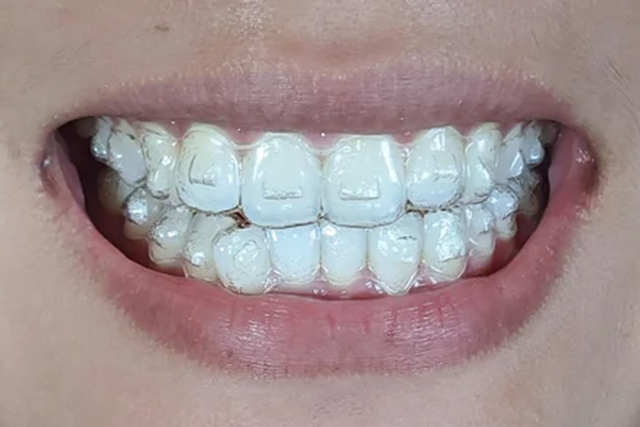
Invisalign is a popular orthodontic treatment that uses clear, removable aligners to straighten teeth. One of the most common questions people have when considering Invisalign treatment is whether they can get it if they have wisdom teeth. In this blog post, we will discuss the relationship between wisdom teeth and Invisalign, as well as what to expect if you have both. invisalign Houston TX
What are Wisdom Teeth?
Wisdom teeth, also known as third molars, are the last set of teeth to develop in the mouth. They typically emerge in late adolescence or early adulthood, often causing problems due to their position and alignment. In many cases, wisdom teeth are misaligned or impacted, which can cause pain, swelling, and infection. For this reason, dentists often recommend removing wisdom teeth, especially if they are causing discomfort.
What is Invisalign?
Invisalign is a popular orthodontic treatment that uses clear, removable aligners to straighten teeth. The aligners are custom-made for each patient and are designed to gradually shift teeth into their desired position. Invisalign is often preferred over traditional braces because the aligners are virtually invisible and can be easily removed for eating and cleaning.
Can You Get Invisalign with Wisdom Teeth?
The short answer is yes, you can get Invisalign with wisdom teeth. However, it depends on the position and alignment of your wisdom teeth. If your wisdom teeth are fully erupted and do not cause any problems, they will not interfere with Invisalign treatment. In fact, Invisalign can even help to straighten your wisdom teeth along with your other teeth.
However, if your wisdom teeth are impacted or misaligned, they may need to be removed before starting Invisalign treatment. This is because impacted or misaligned wisdom teeth can interfere with the movement of your other teeth, making it difficult for the aligners to shift them into the desired position. In some cases, your dentist or orthodontist may be able to work around your wisdom teeth, but this will depend on the severity of the misalignment and the specific needs of your treatment.
If you are considering Invisalign and have wisdom teeth, it is important to have a consultation with your dentist or orthodontist to determine the best course of action. They will be able to assess the position and alignment of your wisdom teeth and recommend whether they need to be removed before starting Invisalign treatment.
What to Expect if You Have Both
If you have both wisdom teeth and are considering Invisalign, there are a few things you can expect during your treatment. First, your dentist or orthodontist may recommend removing your wisdom teeth before starting Invisalign treatment. This will depend on the position and alignment of your wisdom teeth and the specific needs of your treatment.
If your wisdom teeth do not need to be removed, you can expect to wear your Invisalign aligners as usual. However, it is important to keep in mind that your wisdom teeth may shift slightly during treatment, especially if they are not fully erupted. This can affect the alignment of your other teeth and may require adjustments to your treatment plan.
In some cases, your dentist or orthodontist may recommend including your wisdom teeth in your Invisalign treatment. This can be beneficial if your wisdom teeth are misaligned and need to be straightened along with your other teeth. However, including your wisdom teeth may also increase the length of your treatment and require additional aligners.
Overall, the impact of wisdom teeth on Invisalign treatment will depend on the individual case. It is important to have a consultation with your dentist or orthodontist to determine the best course of action for your specific needs.
Tips for Managing Invisalign and Wisdom Teeth
If you have both Invisalign and wisdom teeth, there are a few things you can do to manage your treatment and minimize any discomfort or issues:
- Keep up with your oral hygiene: Proper oral hygiene is essential for Invisalign treatment, especially if you have wisdom teeth. Brush and floss regularly to keep your teeth and aligners clean, and use an antibacterial mouthwash to prevent infection.
- Be aware of any discomfort: In some cases, Invisalign treatment can cause discomfort or soreness, especially when changing to a new set of aligners. If you have wisdom teeth, this discomfort may be more pronounced. Be sure to follow your dentist or orthodontist’s instructions for managing discomfort and contact them if you have any concerns.
- Follow your treatment plan: Invisalign treatment requires consistency and discipline to achieve the desired results. Follow your treatment plan carefully and wear your aligners for the recommended amount of time each day to ensure that your teeth are shifting properly.
- Communicate with your dentist or orthodontist: If you have any concerns or questions about your Invisalign treatment or your wisdom teeth, be sure to communicate with your dentist or orthodontist. They can provide guidance and advice to ensure that your treatment is as effective and comfortable as possible.
Conclusion
Invisalign is a popular orthodontic treatment that can help straighten teeth and improve oral health. If you have wisdom teeth, you may be wondering whether you can still get Invisalign. While the answer is yes, it depends on the position and alignment of your wisdom teeth. In some cases, wisdom teeth may need to be removed before starting Invisalign treatment, while in others, they can be included in the treatment plan. It is important to have a consultation with your dentist or orthodontist to determine the best course of action for your specific needs. With proper management and communication, Invisalign and wisdom teeth can coexist, helping you achieve a healthy, beautiful smile. dental office Houston







